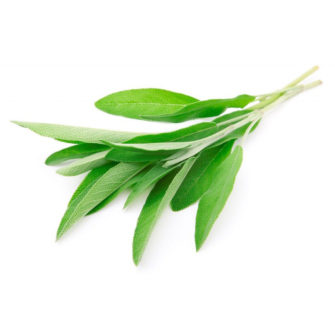There are many species of sage but the two most common are common sage (Salvia officinalis) and Spanish sage (Salvia lavandulaefolia). Sage may help with chemical imbalances in the brain that cause problems with memory and thinking skills. It might also change how the body uses insulin and sugar.
People commonly use sage for memory and thinking skills, high cholesterol, and symptoms of menopause.
Sage Uses
- Cognitive function – Taking sage by mouth seems to improve memory and thinking skills in healthy adults.
- Helps with hyperlipidemia (high levels of cholesterol or other fats in the blood). Taking common sage three times daily for 2 or 3 months reduces low-density lipoprotein (LDL or “bad”) cholesterol and triglyceride levels. It also increases high-density lipoprotein (HDL or “good”) cholesterol, in people with high cholesterol.
- Helps ease the symptoms associated with menopause. Taking common sage extract by mouth for 4 weeks improves some symptoms of menopause, especially hot flashes, night sweats, and sleep problems.
- Pain after surgery
- Lung cancer
- Sore throat
- Sunburn
Side Effects of Sage
When taken by mouth: Sage is possibly unsafe when taken in high doses or for a long time. Some species of sage, including common sage (Salvia officinalis), contain a chemical called thujone. Too much thujone can cause seizures and damage the liver and nervous system. The amount of thujone varies with the species of sage, the time of harvest and growing conditions.
Contraindications Related to Sage
- Taking sage during pregnancy is likely unsafe because of the thujone found in some sage species. Thujone can bring on a menstrual period, which could cause a miscarriage.
- Taking sage while breast-feeding is possibly unsafe. The thujone in sage might reduce the supply of breast milk.
- For people with hormone-sensitive condition such as breast cancer, uterine cancer, ovarian cancer, endometriosis, or uterine fibroids: Spanish sage (Salvia lavandulaefolia) might have the same effects as estrogen. If you have any condition that might be made worse by estrogen, do not use Spanish sage.
- Spanish sage (Salvia lavandulaefolia) might increase blood pressure in some people with high blood pressure.
- Common sage (Salvia officinalis) might actually lower blood pressure.
- Common sage contains significant amounts of thujone, a chemical that can trigger seizures. If you have a seizure disorder, don’t take sage in amounts higher than those typically found in food.
- Common sage might affect blood sugar levels and interfere with blood sugar control during and after surgery.
Origins of Sage
Mediterranean region
My Favorites
- No Favorites Yet

